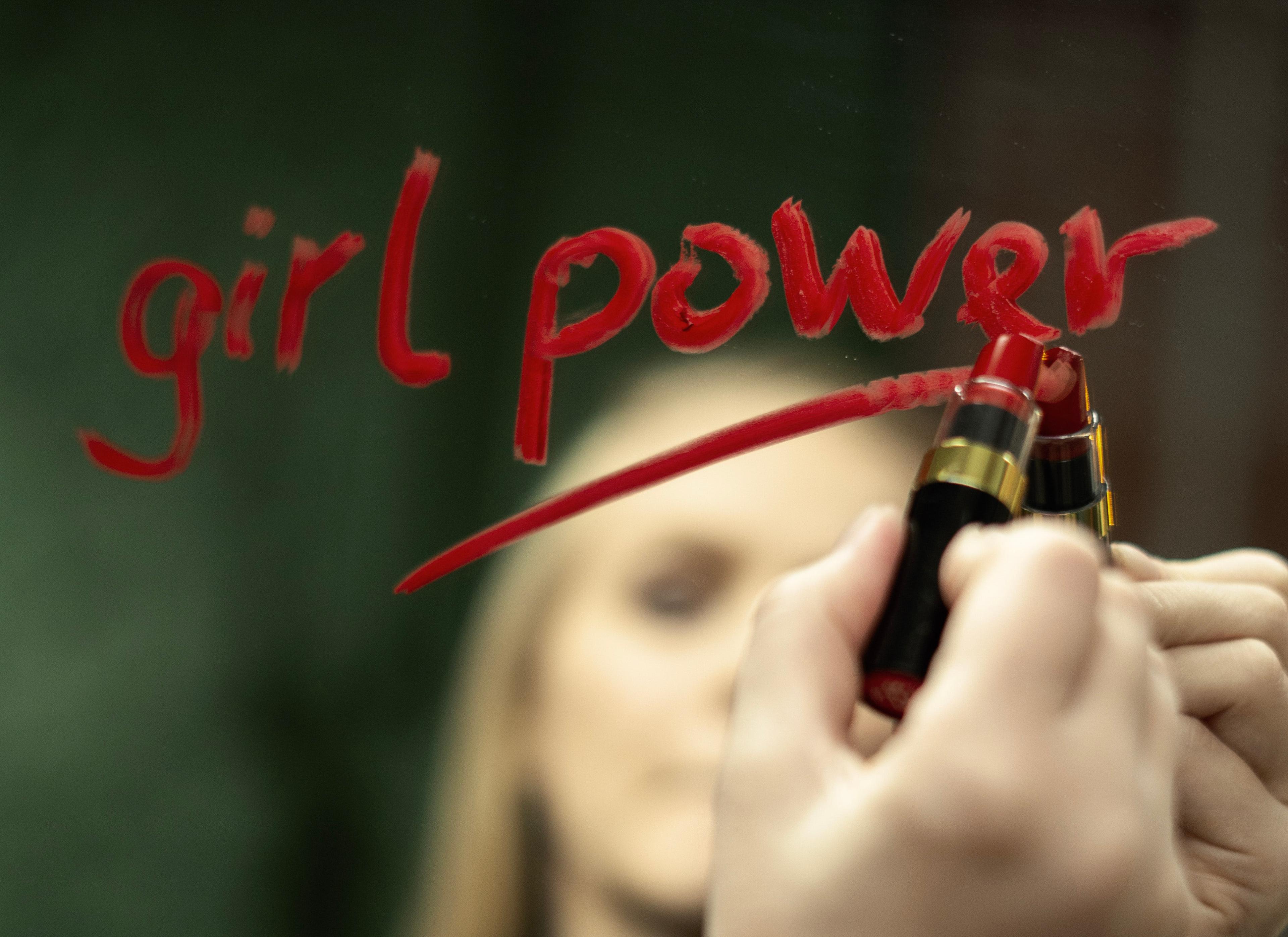One of the things that I find most interesting about aesthetics is the misconception that women only get treatments for others (namely men), not for ourselves. Or that if we have aesthetic treatments, it’s cheating - like ageing is a competition...or, even worse, a test. Intriguing argument. But where does this leave feminists who dabble in treatments like anti-wrinkle treatments and fillers? Can you really be a feminist AND have injectables?
Can You Be a Feminist AND Get Injectables?
What does it mean to be a feminist?
I’ve always considered myself to be someone who strives for equality. As a woman born in the late 20th century, I feel lucky that I’ve had a lot of the things many women before me didn’t have. I was schooled, went to college and university, I can vote, I can work. So, I’m fortunate in many ways. But I know that there’s still a long way to go before women are viewed as equal. So, I consider myself to be a feminist.
Though I do have male friends, the majority of my close friends are female (all mid-30s and above). Some of them have aesthetic treatments, some have shown an interest in them, others have absolutely no interest in getting them. I was intrigued to know what they thought it means to be a feminist. Here’s what they said…
Cassy, 34, from Worcestershire says, “I think everyone should be a feminist. For me, feminism is about equality and works towards male and trans rights just as much as female rights. To be a feminist is to believe in those equal rights. There is a serious split between extreme feminism and the garden variety I practice, so not everyone would necessarily agree that I’m a serious feminist, but I don’t think that activism always needs to be noisy and in your face. Sometimes, it’s just about being genuine and expecting the world to recognise and reward that.”
Kathie, 36, from Nottinghamshire says, “I never like to use the term ‘feminist’ because of the negative connotations. I’d rather say I’m all for equality rather than feminism, although I guess it’s just semantics at the end of the day because men can be feminists too. I feel very strongly about women being equal.”
Beverley, who’s 62 and from Gloucestershire says, “I want to be considered equal to men so I’d say I am a feminist.”
Kay, 49 from Herefordshire says, “I do consider myself to be a feminist. For me that’s about believing in equal rights for everyone, irrespective of sex, based on merit.”
In summary, the majority of my friends consider themselves to be a feminist of sorts - that is, they want to be recognised as equal to men.
I do consider myself to be a feminist. For me that’s about believing in equal rights for everyone, irrespective of sex, based on merit.
Can you be a feminist who has injectables?
And because I’m that annoying friend, I wanted to know more. I wanted their thoughts on whether you can be a feminist and still get injectables or whether they thought that was completely out of the question. Fortunately, it was a resounding “yes you can”. This is what they said...
Kathie explained, “In my opinion, you can have Botox and be a feminist because having aesthetic treatments is nothing to do with being equal.”
Cassy told me, “I don’t think there’s anything wrong with aesthetic treatments. Beauty standards have long been a subject of contention but feminism should empower the person to do and feel comfortable doing what makes them happy - and not face questions for that. Personally, I find external beauty to feel like an armour - a shiny forcefield that allows me to be my best self in confidence. It’s not always possible to feel like the best you without a fresh coat of paint to convince yourself. And while feminism is righting wrongs and setting standards, it can’t always correct those personal insecurities.”
Beverley said “Being a feminist is about wanting to be equal to men - not about what you choose to do with your own face. They are two separate things entirely.”
And Kay said, “I think you can be a feminist and still have injectables with the caveat that any treatments should not be to try and gain advantage over others based on appearance. If women judge each other on how they look, they shouldn’t complain when men do the same.”
I find external beauty to feel like an armour - a shiny forcefield that allows me to be my best self in confidence.
What’s the argument for feminists not to have anti-wrinkle treatments?
Here’s the thing. I’m almost 37. At this stage in my life, I’m just trying to look the best I can with the features I have. I don’t want to be anyone else and I don’t want to try and impress or turn heads. I’m comfortable in my body, I just want to look good - for me. Because I feel that if I look good, I often feel better.
However, for some, the idea that a woman might consider having aesthetic treatments like anti-wrinkle injections for forehead lines is just plain wrong. And I’ve heard this from both men and women. Here are some of the arguments I’ve been subjected to…
- It makes everyone look fake (not true!)
- Why would you want to inject poison into your face (erm, it’s not exactly heroin!)
- What’s wrong with ageing gracefully? (It’s not for everyone)
- Women shouldn’t try to look good if they want to be taken seriously (really?!)
- If you want injectables, you must be lacking self-confidence (You can be an extremely confident person but still want to look the best you can)
- Aesthetic treatments are feeding the patriarchal system (Or they’re making a hell of a lot of men and women look and feel better a lot of the time)
Bring an A list celeb into the mix, though, and it’s all, “No, she doesn’t look like the type”, or “She’s just naturally beautiful.” Really?! She still looks like that at 50? As far as I’m aware, there’s no celebrity gene - just bloody good medical aesthetics.
Treatment guilt
Should ‘normal’ women really be subjected to the guilt that comes with having aesthetic treatments. In a word, no. Sometimes, we just want to look better for ourselves - not to put ourselves in competition with other women, and not to support the patriarchal system that’s still working against so many women. But women who do choose to have aesthetic treatments don’t deserve to be judged, just as much as those who decide not to have them shouldn’t be.
I guess the point I’m trying to make is that we shouldn’t be placed under one label. Women (like men) can be many things. As Meredith Brooks said, “I’m a bitch, I’m a lover, I’m a child, I’m a mother…” (damn, 90s music’s good!). We can be successful and beautiful and smart and creative… and so many other things. It doesn’t stop us being a feminist. So, having aesthetic treatments certainly doesn’t stop us from being one.
In fact, you could argue that judging women who are choosing to have aesthetic treatments is anti-feminist behaviour. It’s their face and their choice. No one else should have an impact on their decision, as long as it’s done for themselves and no one else, and is done safely. That’s the thing about feminism. It’s about supporting other women and treating them as equals - not just alongside men but alongside each other too.

